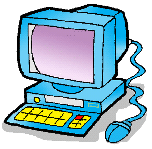|
A high-quality Computing education equips pupils to use computational thinking and creativity to understand and change the world. Computing has deep links with mathematics, science, and design and technology, and provides insights into both natural and artificial systems. The core of computing is computer science, in which pupils are taught the principles of information and computation, how digital systems work, and how to put this knowledge to use through programming. Building on this knowledge and understanding, pupils are equipped to use information technology to create programs, systems and a range of content. Computing also ensures that pupils become digitally literate – able to use, and express themselves and develop their ideas through, information and communication technology – at a level for the future workplace and as active participants in a digital world.
|
 |
|
School Curriculum for Computing
Our teaching of this subject and the expectations we have of children are underpinned by the National Curriculum Programmes of Study for Computing.
In each year group, children will be taught:
- to understand and apply the fundamental principles and concepts of computer science
- to analyse problems in computational (logical) terms
- have experience of writing computer programs
- apply and evaluate information technology to solving problems
- be responsible, confident and competent users of information and communication technology
In Key Stage 1 (Years 1 and 2), the children will be taught:
- about algorithms and the need for digital devices to have specific and precise instructions
- to create, debug and predict the behaviour of simple programs
- to use technology purposefully to create, organise, store, manipulate and retrieve digital content
- to recognise and talk about the use of information technology beyond school
- to use technology safely and respectfully, keep personal information private
The above are taught through discrete Computing/ICT lessons which may relate to a topic or theme.
In Key Stage 2 (Years 3 – 6), the children will be taught:
- more complex design, creation and debugging of computer programs
- to use digital devices and programs to control or simulate the control of physical systems
- to understand the concepts of efficient and effective programming (repetition, selection and sequence)
- how to use variables in programs
- to detect and correct errors in programs
- understand computer networks and how they work, including the world wide web
- use search technologies effectively and safely
- select, use and combine a variety of software on a range of devices to create, organise, manipulate, retrieve and present digital content
- use technology responsibly, respectfully and safely, knowing what is acceptable behaviour and when to report concerns and seek help and support
|

